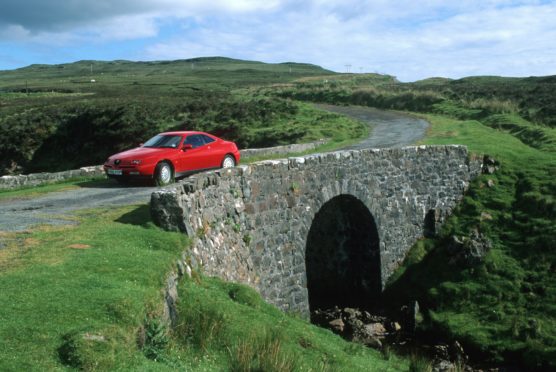A Skye tourism organisation has hit out at the Scottish Government’s plans for a licensing scheme for short term lets, calling it ‘hugely onerous’ and a ‘double whammy’ for microbusinesses after the impact of Covid, and warned it could devastate the sector.
In a webinar organised by SkyeConnect it emerged that in a poll of the Association of Scotland’s Self-Caterers (ASSC), one in three members said the heavy-handed regulations would make their businesses unviable, nearly half said they would leave the industry, while a third said they would leave their properties empty or convert them to private use.
The regulations include of annual licensing and monitoring fees which could amount to over £2000 per business; guest arrival and departure curfews; occupancy limits and regular property inspections.
David Weston, chairman of the B&B Association told the meeting that new rules would be catastrophic for Skye businesses.
He said: “These microbusinesses – like many thousands across Scotland – are a keystone of Scotland’s tourism offer to domestic and international visitors.
“In the islands, Highland rural areas and villages across the country, B&Bs and self-catering properties are often the only tourism accommodation, and the spend by their guests supports these fragile economies.
“The businesses are understandably very concerned that the poorly-drafted ‘Short-Term Lets’ licensing legislation would be hugely onerous to microbusinesses in Skye and right across Scotland and would be a catastrophic ‘double whammy’ after these very same, small family businesses have been so disproportionately hit by Covid-19.”
Karen Parker has run Lochshore House B&B in Edinbane for the past eight years.
The business is rated 4* Gold by Visit Scotland and has won numerous accolades.
Mrs Parker said if the regulations come into force, she will give up the business she loves.
“Last year I made less than 10% of the income I usually make due to Covid.
“Whereas usually I’m almost fully booked at this point, this year I only have six bookings.
“The idea of £2,000 charges would wipe out any profit the way things are.
“Lochshore House is my family home, and we work so hard to do everything properly and get things right for our guests, there is nothing more we can do to make it better.
“The regulations allow for the council or police to have power of entry to the house if you’re not in.
“That makes me uncomfortable, and I’m not prepared to do it.”
In normal years, four guests go from her B&B to the Edinbane Inn for dinner every night from March to November, she added.
“The impact on the local economy will be huge if B&B owners give up their businesses.”
The sector has been given until January 22 to present written evidence to the Scottish Government’s local government and communities committee, with a meeting on January 27 to endorse or reject the regulations.
Housing minister Kevin Stewart said: “Our proposals on short term lets are in response to concerns raised.
“They will give local authorities the powers they need to balance community needs and concerns with wider economic and tourism interests.”
Dave Till, SkyeConnect chairman, said: “We know how damaging the licensing legislation will be to the tourism and wider economy of Skye and Scotland as a whole. “We urge everyone with an interest to write to their MSP and submit evidence to the committee as soon as possible to stop the imposition of such onerous regulation.”
Housing minister Kevin Stewart said: “Our proposals on short term lets are in response to concerns raised.
“They will give local authorities the powers they need to balance community needs and concerns with wider economic and tourism interests.”
For Fiona Campbell, chief executive of ASSC, the legislation is a blunt tool to fix a perceived problem.
She said: “The regulation that B&B and self-catering is facing may well inflict the kind of damage on our vital sector from which it will never recover.
“The ASSC believes that a licensing system is a blunt tool to fix a perceived and localised problem of amateur operators in Edinburgh, rather than being a solution that is appropriate for the whole of the Scotland.”
Earlier this month the Scottish Government announced further £104.3 million support package for tourism and hospitality businesses in Scotland
The housing minister said he understands about the impact the pandemic has had on the tourism sector.
“We have listened to concerns raised by business and tourism representatives. That is why we have made an important change to our proposals so that existing operators in Scotland can be sure they have until 1 April 2023 to apply for a licence, giving them over two years to get ready. I very much hope that tourism in Scotland will have recovered strongly from the impact of the pandemic by that point.
“It is right we are taking action now to ensure that all short-term lets across Scotland adhere to a common set of safety standards. Many hosts will already be following these standards as a matter of compliance with existing law or best practice. We are establishing a working group to develop guidance on the licensing scheme for hosts and local authorities and self-caterers will be represented on that group to help us shape the guidance.
“We are committed to monitoring and evaluating the impact of our proposals to ensure that they are effective and targeted.”
